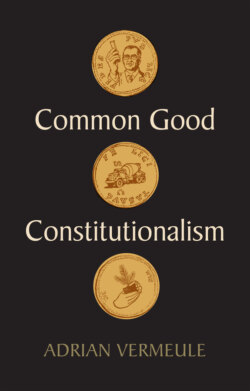Читать книгу Common Good Constitutionalism - Adrian Vermeule - Страница 17
The Common Good and “the Common Good”
ОглавлениеIn the end, every legitimate act of government works with some conception or other of the common good; that is inescapable.30 This point only becomes all the more transparent when – as often happens, especially in the administrative state – courts are called upon to construe legal provisions and clauses that speak in abstract terms of “the general welfare,” “the public interest,” or other formulations. Such provisions merely make the implicit explicit, writing the common good into the terms of the law itself. Those terms must be construed one way or another. The choices are for the court to give them a substantive construction, which will inevitably require the court to take some view or other of what counts as the public interest, or for the court to defer wholly or partly to political authorities to fill in the provisions’ content, perhaps subject to judicial review for reasonableness.
I will argue that the best of our traditions is that the courts should defer to public determination of such provisions, so long as the public authority acts rationally and with a view to legitimate public purposes: the ends of peace, justice, and abundance, and their modern extensions. Construing the “public use” language of the so-called “Takings Clause” of the Fifth Amendment (incorporated into the Fourteenth), the Court once said that “[t]he ‘public use’ requirement is thus coterminous with the scope of a sovereign’s police powers…. The Court has made clear that it will not substitute its judgment for a legislature’s judgment as to what constitutes a public use unless the use be palpably without reasonable foundation.”31 I argue that this exemplifies a well-ordered scheme of judicial review in our constitutional tradition.
